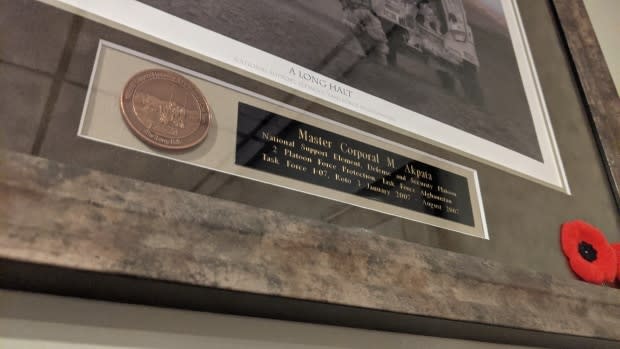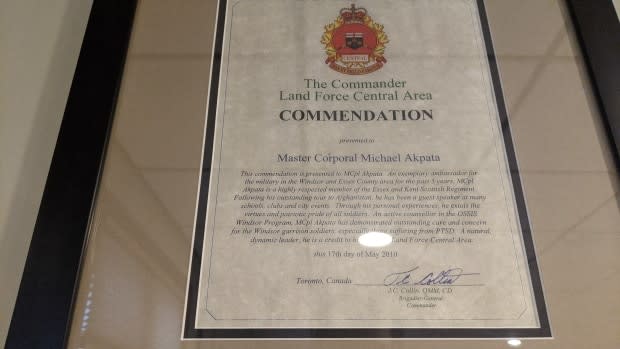LaSalle councillor and former cop, reservist shares experiences with PTSD

LaSalle town councillor and former Windsor police officer Michael Akpata is being featured on a CBC documentary series that launches Friday called You Can't Ask That, and he's speaking about his experiences with PTSD.
The show asks Canadians with different disabilities to respond honestly to the awkward, inappropriate or uncomfortable questions they hear all the time, offering them an empowering platform to speak candidly for themselves.
Akpata, who also served in Afghanistan in 2007, says between his time in the military and the police service -- he's seen some horrible things.
"The tape in my head of these incidents plays over and over and over again. They don't, it doesn't darken. It doesn't like it doesn't go away," he said.
"It is different dates, it is different smells, it is different things that happened and bring into the course of my policing career, there's been some great things that I've been privileged to do with the Windsor Police Service. But as all first line responders, there's been some horrible, horrible calls that stay in your head as well."
Akpata said one thing that does happen to him is he gets transported to the place where the trauma took hold.
"Knowing the outcome of the event, it's not good," he said.
A particular date that stands out was on his daughter's birthday on a fireworks night in the City of Windsor. A young child had been stabbed by their parent, and he remembers seeing their bare-feet on the road, thinking of his own daughter.
"I can remember it and I can remember the smell," he said.
"That tape will play over and over in my head when I drive by that place or on that date."

Akpata says the traumas he has seen and faced has changed him and others who have PTSD, but wants others to understand it is the body reacting to abnormal circumstances.
"One of the things people expect is they expect you to be non-functional and that's not the case, you come up with coping strategies to deal with your new-normal," he said.
"It does not mean that you are debilitated, it does not mean that you are broken, it does not mean that you cannot contribute, it simply means that you are going into self-preservation mode because you've seen something that's so outside of the normal, whether it's child sexual abuse, whether it's child murder, whether it's domestic violence."
Hard to find spaces for discussion
Those who served in the army for previous wars relied on legions across Canada as a place to come together with those who had similar experiences, said Akpata. But for the relatively few who served in Afghanistan, he says they need to open up about what trauimatized them .
"I'm a talker," he said, adding it helps him feel better about his PTSD and what he's been through.
"A burden shared is more easily carried."

Akpata says things have improved in terms of the availability of more supports for first responders dealing with trauma. But he hopes more people may open up to find some inner peace.
"It is something we do our best to deal with and we acknowledge it affects us," he said.
"It is not that you are weak, it takes strength to share."
Akpata is featured in season two of the CBC documentary series You Can't Ask That, on Oct. 16. All of the episodes are available starting today on CBC Gem, a free streaming service. The episodes will also be airing on CBC television.
For more stories about the experiences of Black Canadians — from anti-Black racism to success stories within the Black community — check out Being Black in Canada, a CBC project Black Canadians can be proud of. You can read more stories here.



